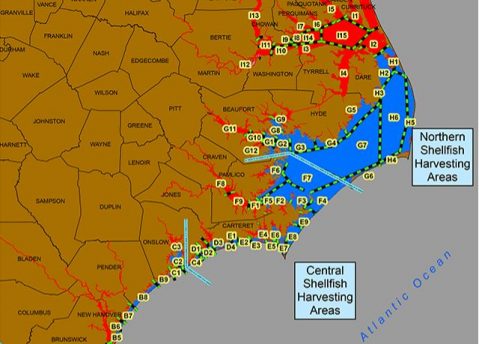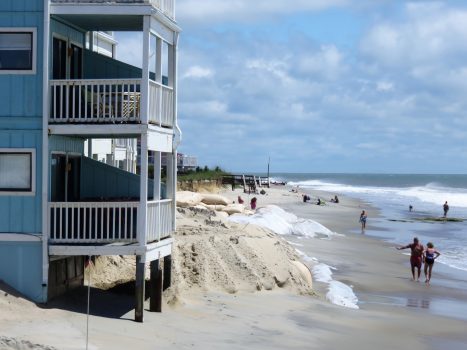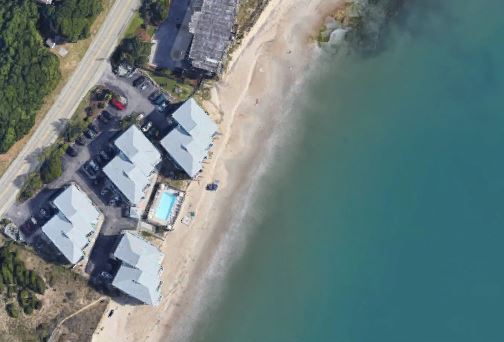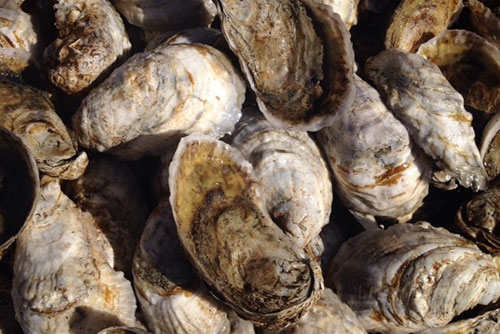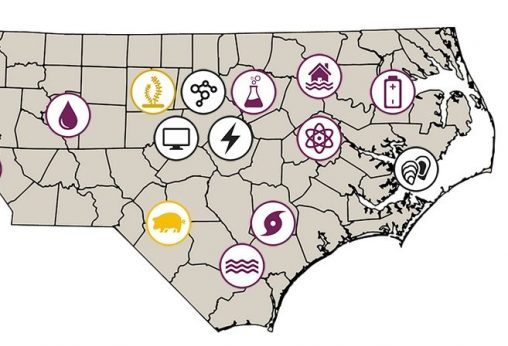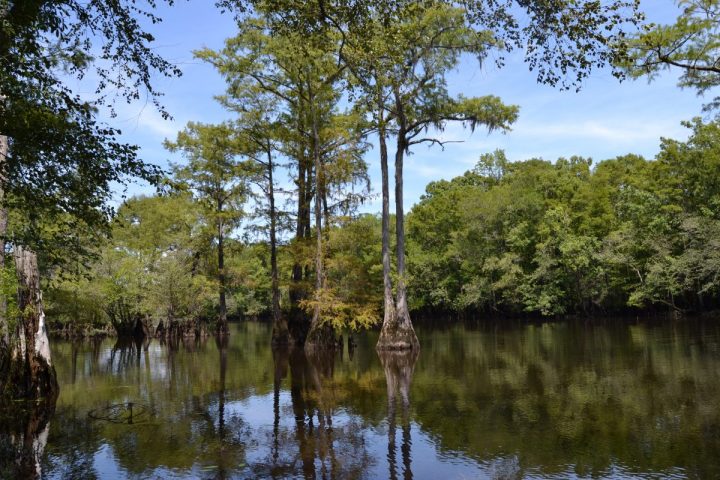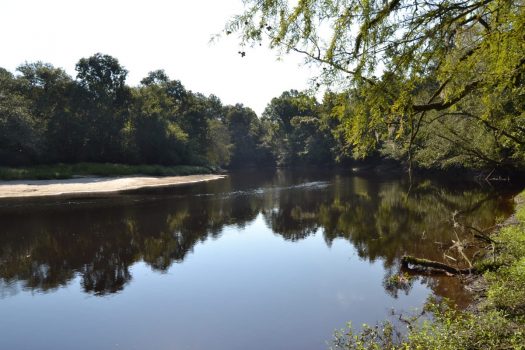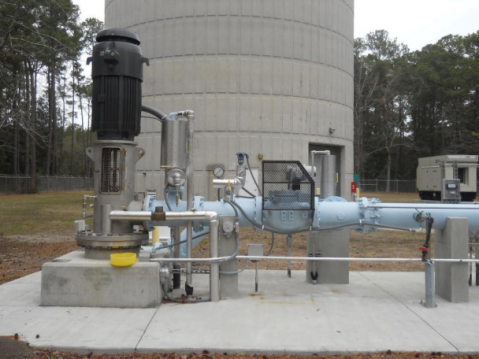New, additional funding for shellfish sanitation and recreational water quality testing in the state could go a long way in protecting public health.
Special Reports
Closures Result of Record Rainfall in July
Many North Carolina waters were closed to harvesting shellfish and recreational water use after the deluge that made July one of the wettest months on record.
Test Case for Oceanfront Development Risks
In real estate, location is everything, and the perilous site of the Kure Beach condominium complex called The Riggings make it a textbook example of challenges in managing coastal development.
New Rule Latest Effort to Save The Riggings
The legislature in June threw a lifeline to The Riggings, a condo complex in Kure Beach threatened by erosion since its construction, but the sandbag rule change is just another short-term fix in a losing battle with the ocean.
GenX Aware: Old Assumptions, New Attitudes
In the second and final part of our series on the anniversary of the first GenX news report, we examine what has changed in terms of the public’s awareness, behavior and how they may vote.
GenX Wake-up Call, Legislative Snooze Button
It’s been a year since news was first reported of GenX and other contaminants in the Cape Fear region’s drinking water, but despite all the attention, little progress has been made to protect public health.
Blueprint Employs Oysters’ Restorative Ability
In the final installment of our special report on the Lower Cape Fear River Blueprint for restoring and protecting the river’s coastal area, oysters play an important role.
Blueprint: Water Quality, Living Shorelines
In the second installment of our series on the Lower Cape Fear River Blueprint, we explain the plan’s goals and strategies for protecting the river’s vulnerable natural resources.
Lower Cape Fear Focus of Restoration Effort
Groups including the North Carolina Coastal Federation recently unveiled the Lower Cape Fear River Blueprint, a long-range plan for restoring and protecting the river’s coastal area.
Collaboratory Studies: Better GenX Detection
Researchers with grants from the North Carolina Policy Collaboratory are proposing new, simpler ways to test for GenX and other emerging contaminants in drinking water and to encourage more frequent water sampling.
Policy Collaboratory Moves Into New Phase
After initial skepticism among Democrats, UNC faculty and environmental advocates, the North Carolina Policy Collaboratory appears to be finding its role and gaining support in its second year.
Paddling Black River: Why Locals Oppose Park
Folks in communities along the Black River say a state park here would damage the ecology, exacerbate existing trespassing problems and create other problems.
Paddling Black River: Park Study Underway
Reaction to a proposal earlier this year for a new state park along the Black River prompted legislators to revise the measure to instead call only for a study of the idea.
Paddling Black River: History, Ancient Trees
The Black River, home to cypress trees older than 1,600 years, is also a popular paddling destination in an area of North Carolina with few state parks. Today begins a three-part series on what makes the river special.
GenX Response: Activist Groups Unite Forces
New and experienced activists have joined together in response to the recent detection of GenX and other chemicals in the Wilmington area’s drinking water.
GenX Response: Stored Water Disposal Set
The utility that provides drinking water to 200,000 Wilmington-area residents is set to begin ridding its aquifer storage system of treated water containing traces of GenX.

